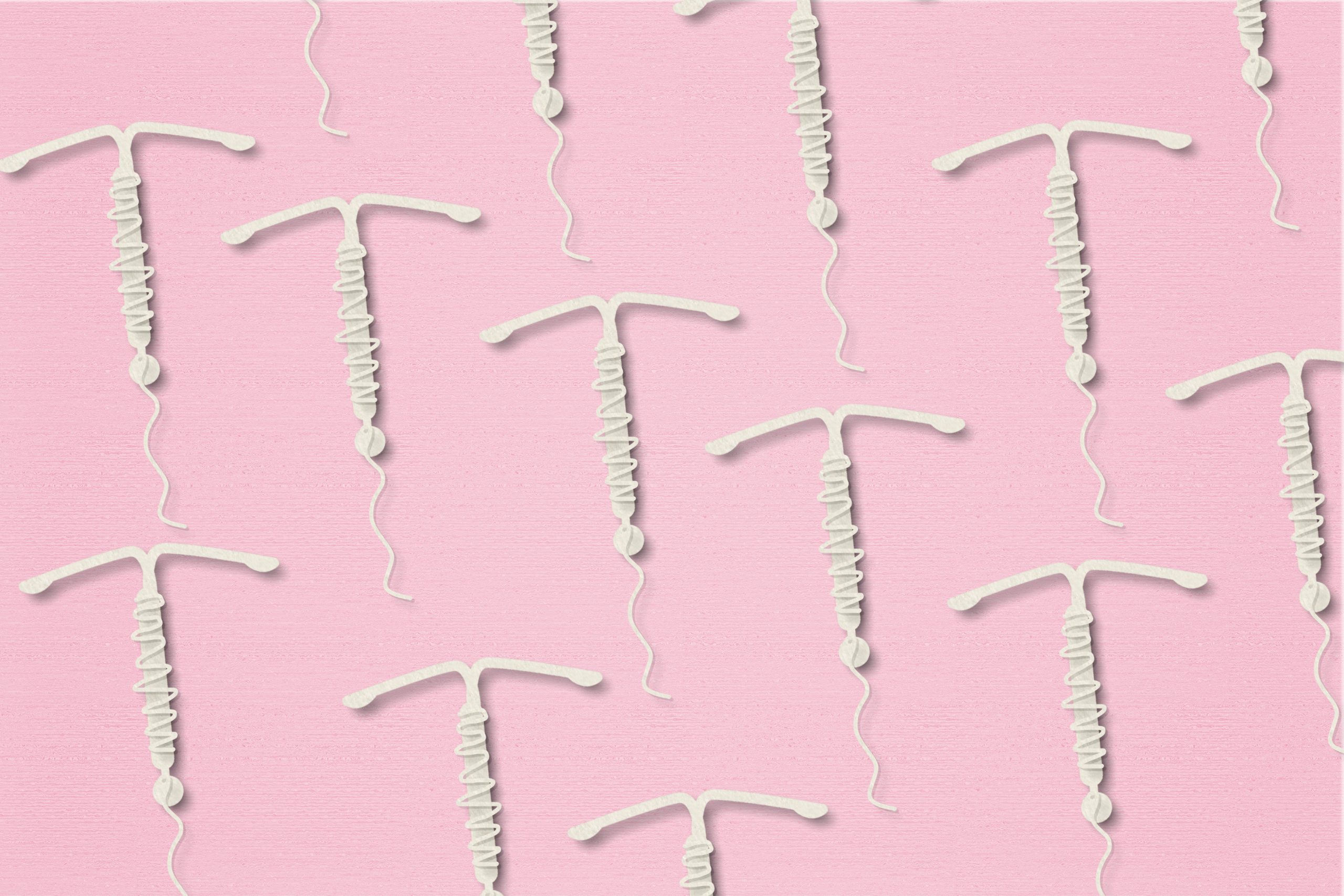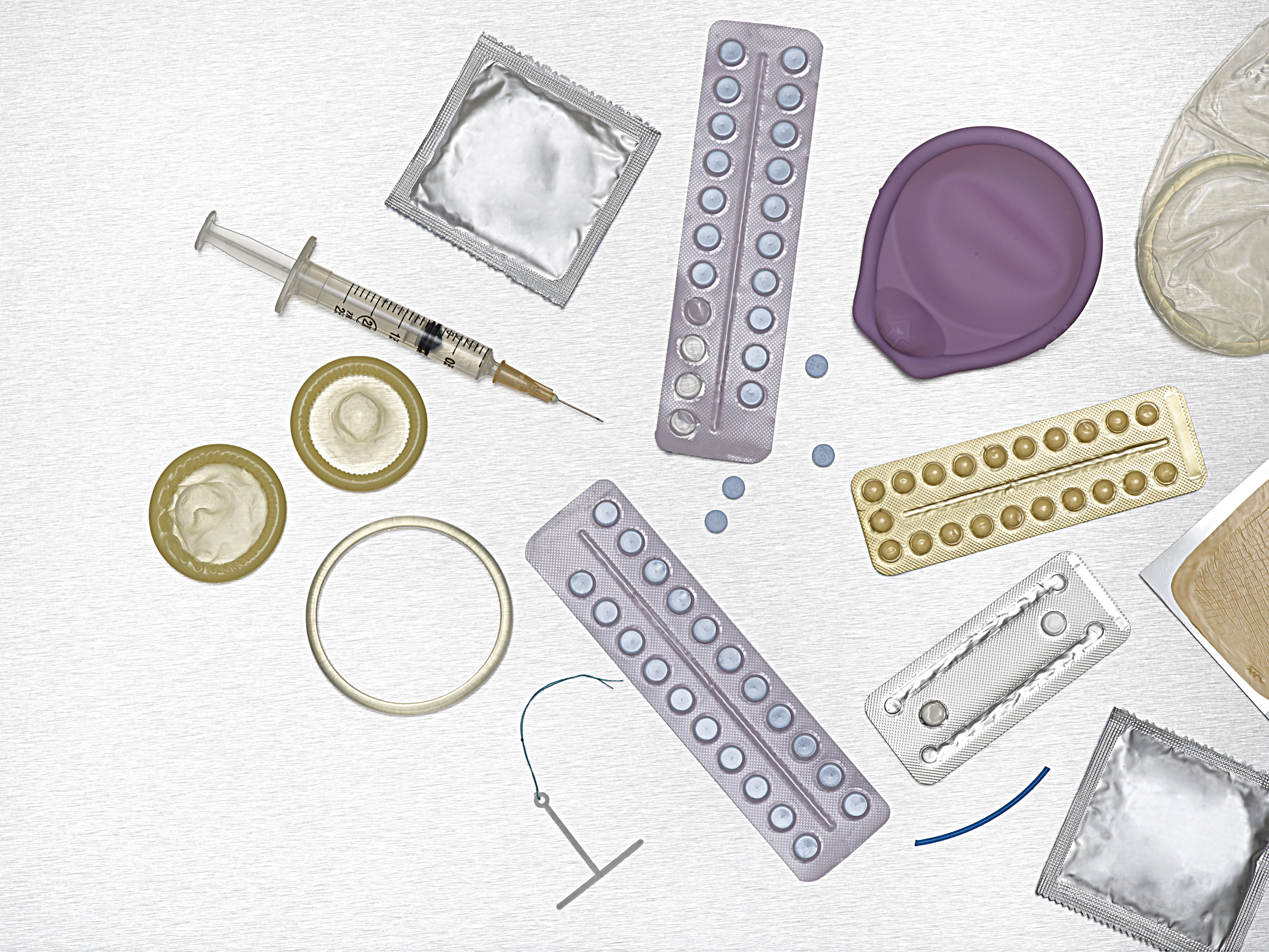Considering getting an IUD? Read up on the different types and side effects
The birth control promises to be 99% efficient. But is it for you?

The birth control promises to be 99% efficient. But is it for you?
If you're Googling the different types of IUD, chances are, you're considering it as a form of contraception and want to learn a little more about how they actually work.
Enter stage right, this expert-led piece covering the different types of IUD's, the potential side effects, and a break down of how doctor's insert and remove them.
While many have IUD's inserted with no complications, they aren't for everyone: according to menstruation expert and founder of Lunette Heli Kurjanen, although they have 99% efficiency rates, individual shape or size of your uterus can actually effect the insertion of an IUD.
To help you workout if the contraceptive is for you, we've spoken to Kurjanen to get the lowdown. Don't miss our guides to the best condoms, urinary tract infection symptoms, or vaginal care, while you'r here.
Types of IUD: copper and hormonal
FYI and if you didn't know, an IUD is a small, flexible T-shaped device made out of plastic, silicone or copper, shares Kurjanen. "Also known as a coil, it's inserted into the uterus and offers protection against pregnancy for anywhere between five and ten years," she explains.
If you're wondering what the different types of IUD are, there are two: copper-based or hormonal. Both work differently and you will experience different side effects dependent on which IUD you get, she explains.
Marie Claire Newsletter
Celebrity news, beauty, fashion advice, and fascinating features, delivered straight to your inbox!
Copper IUD's
Copper IUD's provide extra protection from the spermicidal properties of copper, and the metal also acts on the immune system to help prevent pregnancy, shares Kurjanen.
Hormonal IUD's
Hormonal IUDs, on the other hand, use a hormone similar to progesterone to prevent your body from ovulating.
"All IUDs alter the way the sperm moves inside the uterus in order to prevent it from making contact with the egg," explains Kurjanen. "That way, fertilised eggs are prevented from implanting in the uterus and conception is avoided altogether."

Why would you get an IUD?
So you know the different IUD types - but what are the main pros and cons of opting for this type of contraception?
Kurjanen reckons that they're a good option for those wanting to avoid pregnancy without any side effects. The copper IUD doesn't use synthetic hormones, a bit like the Ballerine IUB coming to the UK this autumn. Other forms of birth control that do use hormones can cause side effects such as acne and headaches, she explains.
It's not advised you get an IUD if you:
- May be pregnant
- Have an untreated STI
- Have an untreated pelvic infection
- Have womb or cervix issues
- Have unexplained bleeding or spotting.
Bottom line: Do book an appointment with your GP or nurse, if you're considering it. They are best qualified to talk through your medical history and decide if an IUD is the right choice for you.

4 IUD side effects
You know of the side effects of the contraceptive pill - and the risk of getting blood clots that comes with taking it - but what may you experience with an IUD?
As with anything in life, there are a few things to be aware of before you make your decision. According to Kurjanen, you're at a higher risk of the following if you do decide to get one inserted:
- Recurring thrush: "There's some evidence that having an IUD puts you at higher risk of experiencing recurring UTI, thrush," she explains.
- Pelvic infections: "There's a small chance of getting a pelvic infection in the first twenty days after your IUD insertion," shares Kurjanen. been inserted. If you experience pain or tenderness in your lower abdomen, a high temperature, or abnormal or smelly discharge, do visit a doctor.
- Uterus tears: It's rare, but it happens. "In around 1 out of every 1000 cases, an IUD can cause a tear in the uterus. This may be painful, although sometimes there may be no symptoms," she shares. Note: see your doctor, if you think this may have happened to you.
- Ectopic pregnancy: Again, even rarer - IUD's are 99% effective, according to the NHS website - but if your IUD does happen to fail and you fall pregnant, there's an increased risk of ectopic pregnancy, the menstruation expert warns.
IUD insertion
Apprehensive about the insertion process? Don't be - you're in safe hands and your nurse will likely have performed these procedures hundreds, if not thousands, of times before.
A little background on how it works for you. "The IUD is implanted into your uterus in a short procedure similar to a cervical screening or smear test," explains Kurjanen.
An IUD can be fitted anytime and offers immediate protection from pregnancy. You should expect minor pain and a little bleeding, but no other major side effects post-insertion.
Not sure if your womb will be big enough for the IUD? Fear not - that'll be checked before insertion.
IUD removal
Similarly to the insertion process, the removal is pretty straightforward, or so says Kurjanen.
"Your IUD can be removed at any time by a trained doctor or nurse. They'll remove it by inserting a speculum into your vagina to widen the opening, and gently pull on the IUD threads which hang out of your cervix into your vagina to pull out the device," she shares.
Threads not immediately present? The doctor may use a special hook or other tool to pull the threads into view, she adds.

I'm thinking about getting an IUD but can't decide. Help!
So, does the expert have any advice for someone considering getting one but feeling a little nervous?
"Firstly, it’s good to remember that the actual placement of the IUD usually takes less than thirty seconds, and people generally place their discomfort level in the range of just three to six out of ten," she shares.
Top tip: Kurjanen recommends speaking to people you know who have IUDs about their experiences. "There are a lot of horror stories on the internet that can make the procedure sound much worse than it really is," she continues.
Ultimately, making sure you're well-informed, have done your research and understand what to expect from the procedure and form of contraception will hopefully get rid of any alleviate fears or anxieties, she concludes.

Ally Head is Marie Claire UK's Senior Health and Sustainability Editor, nine-time marathoner, and Boston Qualifying runner. Day-to-day, she heads up all strategy for her pillars, working across commissioning, features, and e-commerce, reporting on the latest health updates, writing the must-read wellness content, and rounding up the genuinely sustainable and squat-proof gym leggings worth *adding to basket*. She also spearheads the brand's annual Women in Sport covers, interviewing and shooting the likes of Mary Earps, Millie Bright, Daryll Neita, and Lavaia Nielsen. She's won a BSME for her sustainability work, regularly hosts panels and presents for events like the Sustainability Awards, and is a stickler for a strong stat, too, seeing over nine million total impressions on the January 2023 Wellness Issue she oversaw. Follow Ally on Instagram for more or get in touch.
-
 Why Prince William and Princess Kate are skipping the royal Easter celebrations
Why Prince William and Princess Kate are skipping the royal Easter celebrationsBy Jenny Proudfoot
-
 Kendall Jenner, Em Rata and Simone Ashley love this affordable Aussie fashion brand—and it's finally available in the UK
Kendall Jenner, Em Rata and Simone Ashley love this affordable Aussie fashion brand—and it's finally available in the UKChic styles from down under
By Jazzria Harris
-
 I’m a size 18 Fashion Editor—these are the best plus-size jeans I’ve tried
I’m a size 18 Fashion Editor—these are the best plus-size jeans I’ve triedCurve denim that's worth every penny
By Stephanie Yeboah